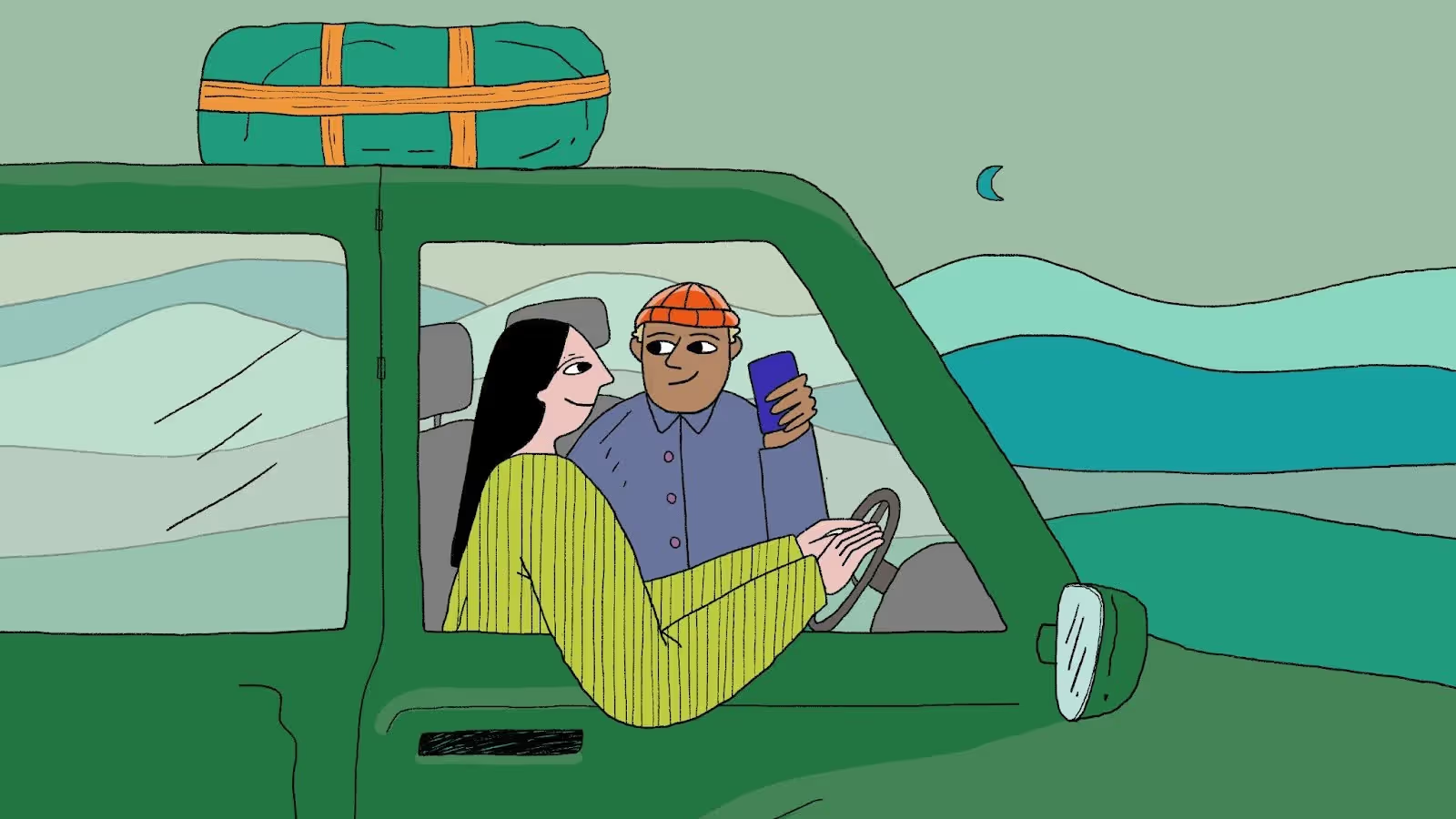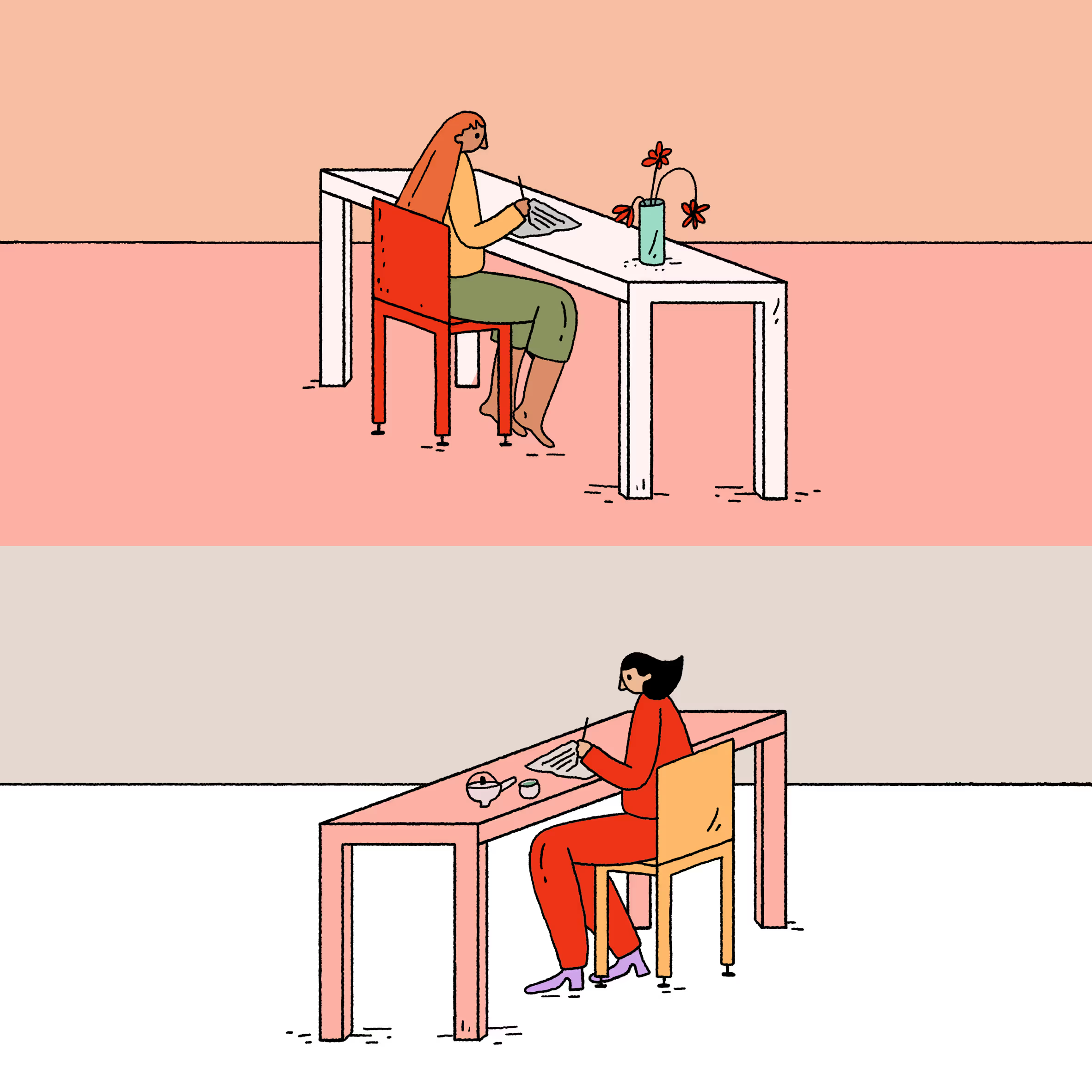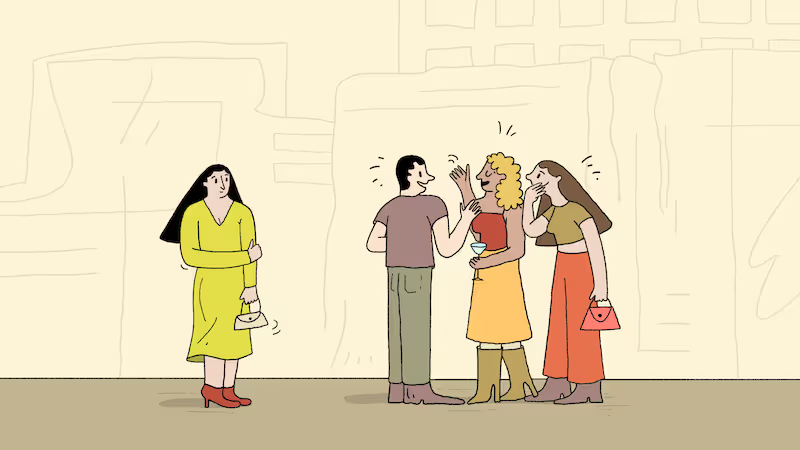Shall We Begin?
“What’s on your unofficial résume?”
For years, this has been one of my favorite questions to ask at parties. I’ve been known to hijack a dinner conversation in which people are splitting off into small conversations in favor of unifying the table with a single prompt. I have lots of such prompts but “the unofficial résume” is the one that immediately gets us away from the dreaded “What do you do?”
I was reminded of this recently by an essay by my dear friend, Suleika Jaouad, whom I met years ago in this exact circumstance. As the subject of the new documentary, American Symphony, Suleika has had many interviews recently, leading her to reflect on what makes a good question. I’ve been reflecting on that a lot myself.
At that dinner party, had we simply talked about what we do, I still think she and I would have quickly gotten to the juicy parts of our conversation, but this question of the unofficial résume reframed the gathering and took us to places that, I think, surprised all of us.
A good question does that. It disrupts a pattern. It goes deeper. Sometimes, it goes sideways. It enables us to travel to a new place without ever leaving one another’s side. That night, I told Suleika and the rest of our dining companions that busking and hitchhiking are on my unofficial résume. I did both throughout my twenties with my then-boyfriend. It’s how I got my first introduction to America, state by state, as a passenger in the cars of kind strangers. (It was a much more common way of traveling at that time.)
Every day, we’d spend hours getting to know a new person, couple, family, or group of friends. No two conversations were the same. No two drivers were the same. We met activists, wanderers, tradespeople, hippies from California, and conservatives from the deep south. Having good questions on hand enabled us to find all that we had in common and to delight in what made us each unique. There were a few times when a good, well-timed question defused a tense moment. My favorite for staying in the thick of it: “How did you come to think that way?” A good one for changing the subject: “What’s a piece of advice you’d give to your younger self?”
Not long after I released my card game, Where Should We Begin—A Game of Stories, I started getting all sorts of messages from people who were using prompts from the game on long road trips. It’s not something I ever suggested, at least not that I remember, but I like to think that there’s some cosmic link between the road trips of my youth and the road trips people are writing to me about now.
The first letter was from a middle-aged left-leaning woman who had recently played the game on a road trip with her elderly, very conservative, parents. She had been dreading the trip for weeks due to their acrimonious political conversations and she thought the game might provide a good distraction. “Both of my parents shared stories from their childhoods that I had never heard, things about my grandparents that were totally new to me. I wished the road trip could have been twice as long.”
Another favorite letter: “After 17 years, my husband and I were stuck. We decided to take a road trip and spend a month working remotely. We packed the game and everyday, we each picked a card and we walked and talked our way past our impasse. It was incredible to learn so much about someone I thought I already knew so well.”
If you have a story like these, I’d love to hear from you by replying to this letter. In the meantime, I wanted to share a few more questions with you in case you’d like to try them out this holiday season with loved ones or kind strangers. You can find those below. My hope is that, as you gather, whether you feel excitement or trepidation, you can find new stories to share, new questions to ask, and new places to travel together without ever leaving each other’s side.
Let’s Turn the Lens on You
- What’s an encounter with a stranger you will never forget?
- What is something you’d like to let go of or release?
- What is something you’d like to invite into your life, to cultivate, to harness?
- What is something you’d whisper in the ear of your younger self?
- What is a risk you took that changed your life?
- What was your form of play as a child and how has that influenced you?
- What is a story of friendship, lost or found (or re-found), that changed your criteria for friendship?
- What is a taboo you grew up with in your family?
- What is a dream you’ve never said aloud?
- What’s an experience you’ve had with mortality?
- What music would you like people to play at your funeral and why?
- What does hope look like for you?
- If you had another career, what would it be?
- If cities were people, who would be your lover, your boyfriend/girlfriend, and your lifelong partner? (I love this one. For me: My lover is Paris or Rio. My boyfriend is Berlin. My lifelong partner is New York.)
More From Esther
- Where Should We Begin—A Game of Stories / available here
My card game is designed to bring out the storyteller in you, your friends, family, partner, dates, and more. Stories are the building blocks of relationships, and these conversation cards are a great way to spark meaningful discussions and go deeper together.
- “Reading and Writing in a Time of War” / last month's newsletter
Correspondence with friends has been the most important reading I’ve done all year. In writing, on the phone, and during long walks, we are processing this war and its tragedies together. Despite all that may be splitting us, we are trying to really see each other and connect through our humanity. We are trying to root ourselves in our relationships.
- My recent conversation on Diary of a CEO / an interview
Whether you're facing challenges in love, wanting to reconnect with your partner, or curious about the nuances of human connection, my conversation with Steven Bartlett is full of tools to better your connections and cultivate your relational intelligence.
Conversation Starters
A compendium of highly recommended sources of inspiration and information
I’m Reading:
- Your Blueprint for Pleasure: Discover the 5 Erotic Types to Awaken―and Fulfill―Your Desires, a must-read new book by Jaiya
- Money a novel by Martin Amis
- “We Refugees” an essay by Hannah Arendt
I’m Watching:
- American Symphony, a beautiful new documentary that follows musician Jon Batiste as he attempts to compose a symphony while his wife, writer Suleika Jaouad, undergoes cancer treatment.
- “Why Do So Many Incompetent Men Become Leaders?,” a TEDx talk by the organizational psychologist Tomas Chamorro-Premuzic
I’m Listening To:
- Aaron David Miller, senior fellow at the Carnegie Endowment for International Peace and the author of “The Much Too Promised Land: America’s Elusive Search for Arab-Israeli Peace” on the History of Israeli-Palestinian peace efforts (The Ezra Klein Show)






.svg)





